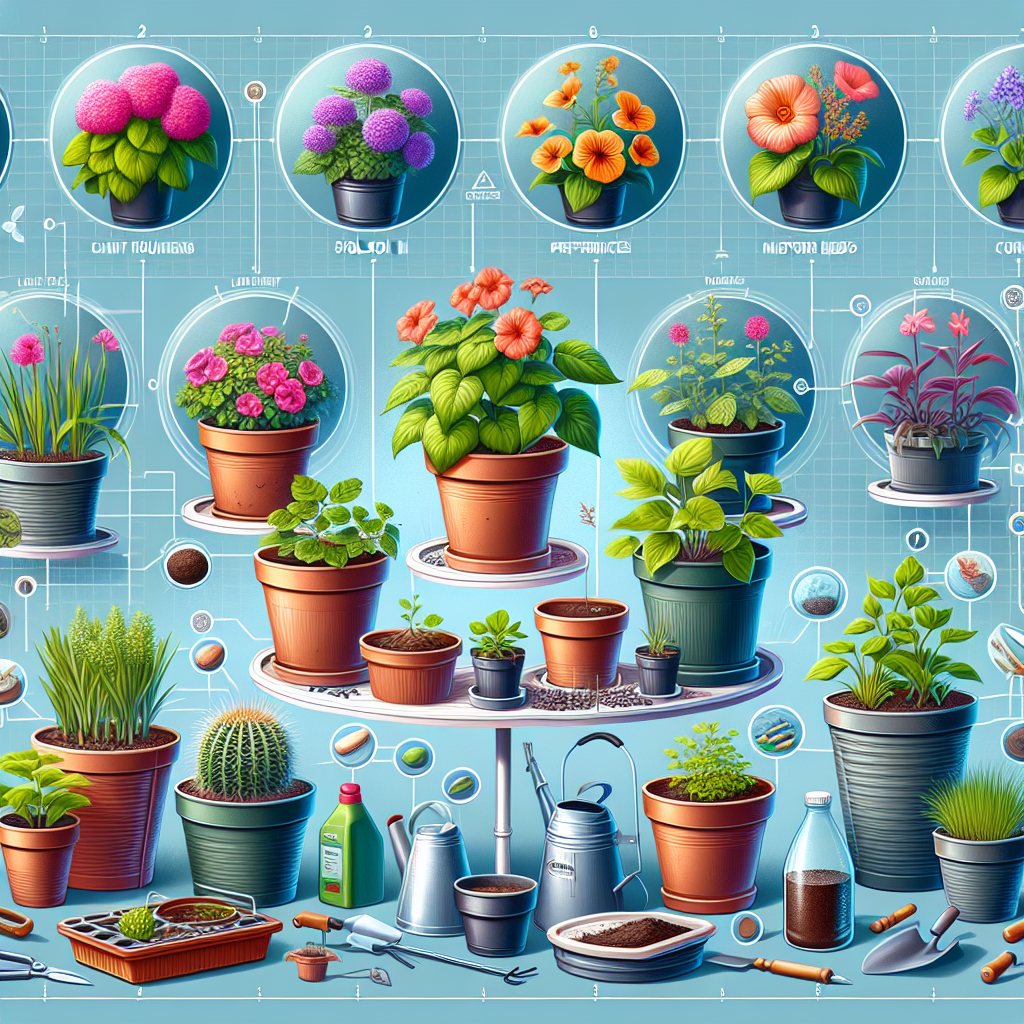Table of Contents
Container gardening is a popular and versatile way to bring the beauty of plants into any space, whether it be a small apartment balcony or a large backyard. Choosing the right plants for your containers is crucial for their health and success, as different plants have unique requirements when it comes to sunlight, water, and soil. Understanding the science behind plant selection can help you create a thriving container garden that will bring joy and beauty to your home.
From choosing the right type of container to selecting plants that complement each other in terms of growth habits and care needs, there are many factors to consider when creating a container garden. By delving into the science behind plant selection for container gardening, you can ensure that your plants will thrive and flourish in their new environment.
The Importance of Choosing the Right Container
When it comes to container gardening, the type of container you choose can have a significant impact on the health and growth of your plants. The size, material, and drainage capabilities of the container all play a role in determining how well your plants will fare.
Choosing Plants Based on Light Requirements
One of the most important factors to consider when selecting plants for your container garden is their light requirements. Some plants thrive in full sun, while others prefer partial shade or full shade. By understanding the light conditions in your outdoor space or indoor area, you can choose plants that are well-suited to thrive in that environment.
Consider Water Needs when Selecting Plants
Another essential factor to consider when choosing plants for container gardening is their water needs. Some plants require frequent watering, while others are more drought-tolerant. By selecting plants with similar water requirements, you can ensure that all of your container garden’s inhabitants receive adequate moisture without overwatering or underwatering any particular plant.
Selecting Plants with Compatible Growth Habits
When creating a mixed planting in a single container, it’s crucial to select plants with compatible growth habits. Some plants are vigorous growers and may quickly outcompete their neighbors for space and nutrients if not properly managed. In contrast, slow-growing or compact varieties may be overshadowed by more aggressive species if not chosen thoughtfully.
Understanding Soil Needs for Different Plants
The type of soil used in containers can greatly impact plant growth and health. Different types of plants have unique soil requirements based on factors like pH levels, drainage capabilities, and nutrient content. Understanding these needs can help you select the right type of potting mix for each plant species in your container garden.
Frequently Asked Questions (FAQ)
- How often should I water my container garden?
– The frequency at which you should water your container garden depends on factors like plant species, weather conditions, and soil type. Generally speaking, most container gardens need watering at least once per day during hot weather. - Can I use regular garden soil in my containers?
– It’s best to use a high-quality potting mix specifically formulated for containers rather than regular garden soil. Potting mixes are lightweight, well-draining, and sterile to prevent disease issues commonly found in outdoor soils. - What are some good low-light plants for indoor containers?
– Some excellent low-light indoor plant options include pothos, snake plant (sansevieria), peace lily (spathiphyllum), zz plant (zamioculcas zamiifolia), and cast-iron plant (aspidistra). These varieties can thrive in low-light conditions with minimal maintenance. - How do I prevent pests from attacking my container garden?
– To deter pests from invading your container garden, regularly inspect your plants for signs of infestation such as yellowing leaves or chew marks. You can also use natural pest control methods like neem oil spray or insecticidal soap to keep pests at bay without harming beneficial insects.













